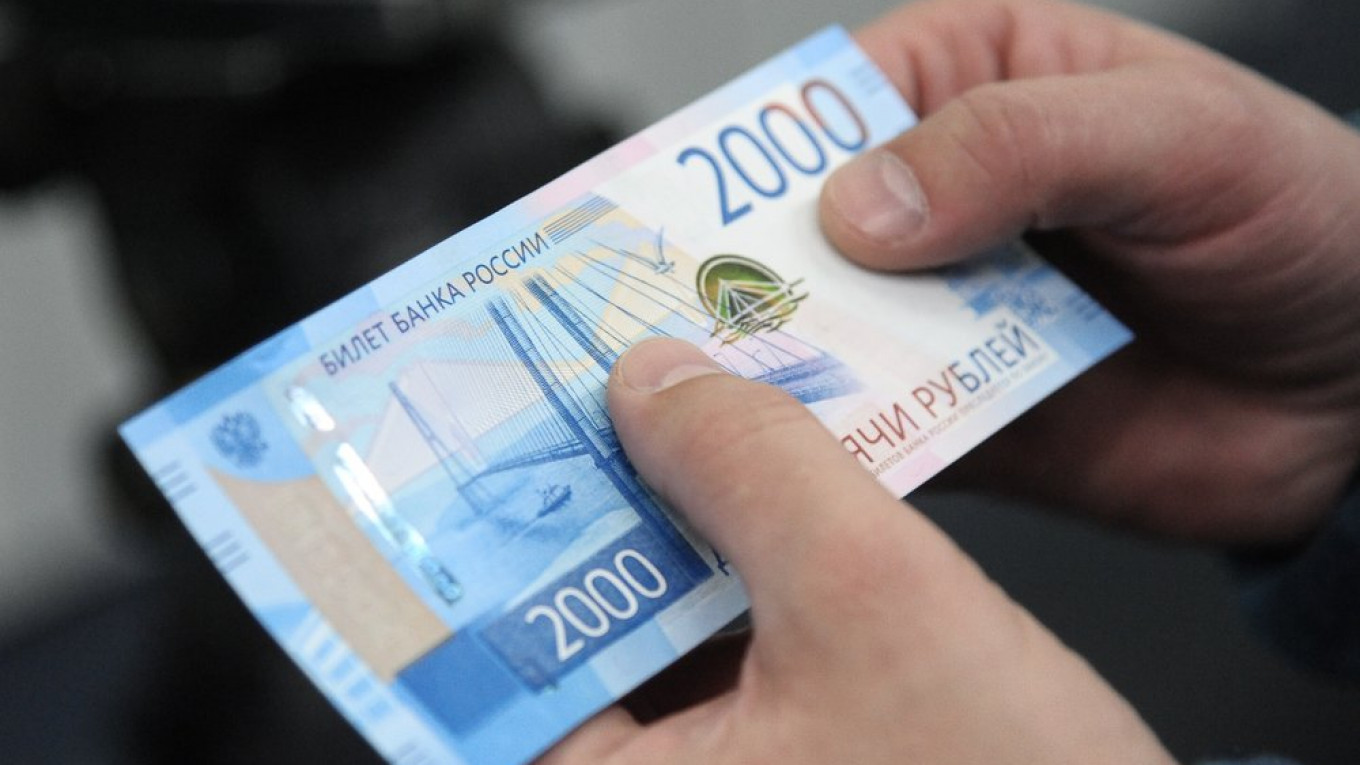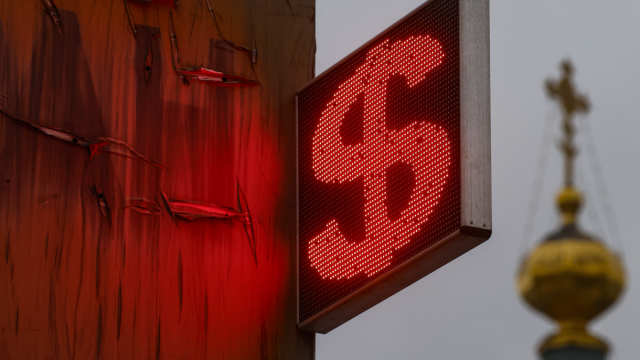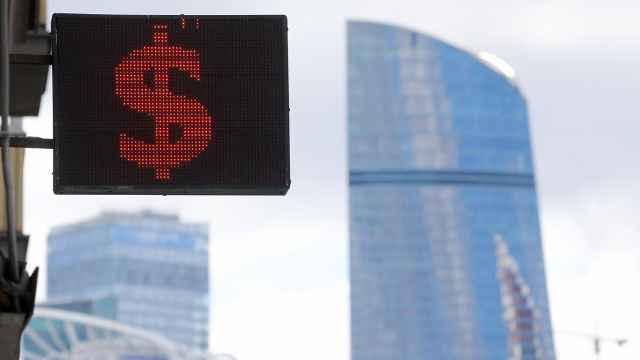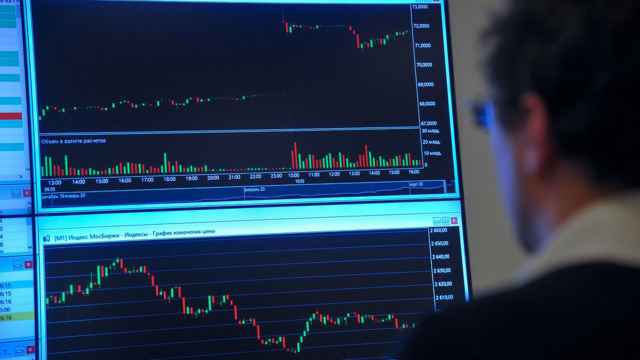The Russian ruble has fallen to its lowest level in months as eye-watering macroeconomic data and fears of renewed coronavirus outbreaks in Europe send investors flocking into safe haven assets.
Against the U.S. dollar the ruble printed 73.5 Friday morning in Moscow, having lost more than 4% in the last two weeks. That took the Russian currency down to its lowest level against the greenback in 11 weeks.
The ruble was performing even worse against the euro, down at 87.2 — its weakest reading since March 30, when Russia had just gone into coronavirus lockdown. Analysts say the euro is particularly strong at the moment, buoyed by the landmark 750 billion euro stimulus package recently agreed by European leaders.
Market sentiment has taken a hit “from bleak macroeconomic data” from both Germany and the U.S. in recent days, said Maxim Korovin, an analyst at VTB Capital. In the U.S. — the world’s largest economy — GDP shrunk by a record 9.5% in the second quarter. Meanwhile, new figures in Europe’s largest economy Germany showed a 10.1% fall in GDP in the second quarter, effectively wiping out a decade of economic growth.
Pessimism on global markets typically hurts the ruble and Russian financial assets, as they are seen as significantly riskier than other investments, such as government bonds from the likes of the U.S., Germany and Japan, as well as gold.
Gold prices have advanced more than 10% since the beginning of July, hovering just below the milestone mark of $2,000 an ounce.
Geopolitics could also be playing a role in the ruble’s recent weakness, Sebastian Petric, financial analyst at Raiffeisen Bank said.
The ruble’s decline “can be related to geopolitical risks such as the U.S. elections nearing fast. A clear [Joe] Biden win might lead to a greater push for renewed U.S. sanctions against Russia and this scenario gets currently priced in the ruble.”
Recent interest rate cuts from Russia’s Central Bank, which took lending rates to their lowest ever level, are another a factor in the currency’s weakness, Petric added, since lower rates typically reduce the relative value of a currency.
A Message from The Moscow Times:
Dear readers,
We are facing unprecedented challenges. Russia's Prosecutor General's Office has designated The Moscow Times as an "undesirable" organization, criminalizing our work and putting our staff at risk of prosecution. This follows our earlier unjust labeling as a "foreign agent."
These actions are direct attempts to silence independent journalism in Russia. The authorities claim our work "discredits the decisions of the Russian leadership." We see things differently: we strive to provide accurate, unbiased reporting on Russia.
We, the journalists of The Moscow Times, refuse to be silenced. But to continue our work, we need your help.
Your support, no matter how small, makes a world of difference. If you can, please support us monthly starting from just $2. It's quick to set up, and every contribution makes a significant impact.
By supporting The Moscow Times, you're defending open, independent journalism in the face of repression. Thank you for standing with us.
Remind me later.






